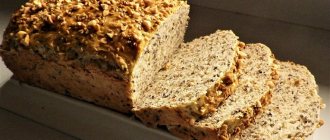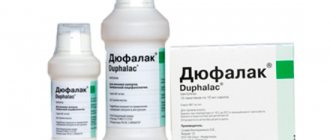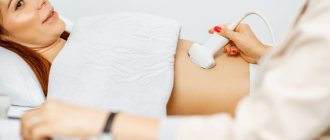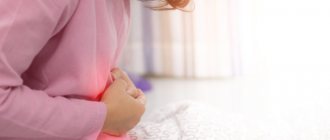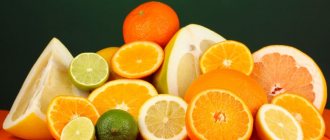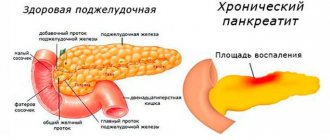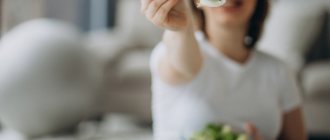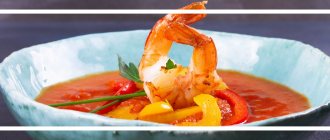Colonoscopy (FCS, video colonoscopy)
is a diagnostic examination
of the intestine
using an endoscope.
This method allows you to timely diagnose and visually evaluate ulcers, tumors, polyps, and also take a sample of material for histological examination (biopsy). Today, colonoscopy (FCS, video colonoscopy) is the most accurate and comprehensive type of diagnosis, since the doctor uses the latest endoscopic technology
. Colonoscopy is performed as prescribed by a doctor or for preventive purposes at the request of the patient. For men and women over 40 years of age, colonoscopy is recommended not only to maintain health, but also to prevent oncological diseases (bowel cancer). The endoscope is a flexible tube equipped with a microcamera. It transmits the enlarged image to the monitor. allowing the endoscopist to visually assess the condition of the intestine, as well as take photographs and video recordings for subsequent analysis. The endoscopist inserts a tube into the anus and gradually moves it up the rectum.
Many patients are nervous before the procedure because they have heard about the discomfort it is associated with. However, high-quality preparation for intestinal colonoscopy really allows you to minimize discomfort.
To achieve reliable research results, proper preparation
, and this is
diet
and
intestinal cleansing
.
WHAT IS COLONOSCOPY?
Colonoscopy
is the most accurate and reliable method for diagnosing changes in the mucous membrane of the colon using an endoscope - video colonoscope.
The true nature of the pathological process is established in almost 100% of cases. A video colonoscope
is a flexible long probe with a built-in video chip that allows you to transmit a color image from inside the intestine to a monitor, makes it possible to see changed areas of the mucous membrane, examine and evaluate their structure in detail, give an opinion on the presumptive diagnosis and, if necessary, take a piece for histological examination (biopsy ).
How to use fiber correctly
An adult should receive from 25 to 35 grams of fiber per day so that his gastrointestinal tract functions stably and predictably. This amount is quite difficult to obtain from diet alone, even if your diet includes vegetables and legumes - the main sources of dietary fiber. Therefore, you can choose an effective drug for yourself.
One of them is the English drug “Fitomucil Norm”. It does not contain preservatives, flavor enhancers or dyes. It contains only plant components:
- plantain seed shell (psyllium);
- dried home plum fruits.
“Fitomucil Norm” is packaged in portioned packages. The contents of the sachet should be mixed with a glass of liquid at room temperature and drunk. Drink a glass of water. In case of constipation, it is generally important to maintain a drinking regime: at least 1.5–2 liters per day. The product gently stimulates the intestines and does not cause pain or bloating. You will find detailed information about the drug on the website.
CARRYING OUT THE FCS AND FCS + FGDS PROCEDURES IN A GERMAN FAMILY CLINIC
|
The purpose of bowel cleansing before the procedure
Colonoscopy is a diagnostic examination.
With insufficient preparation for this study, up to a quarter of polyps remain undiagnosed, some of them may turn out to be malignant.
Thorough cleansing of the colon will make colonoscopy the most informative and multifunctional procedure. A diet specially developed for this will help cleanse the gastrointestinal tract.
Its peculiarity is a minimal amount of toxins, a balanced content of nutrients to maintain well-being in a normal state.
Preparation for the examination takes 3 days. Some patients will prepare even better if they use a therapeutic diet a week before diagnosis. This is important for patients with dolichosigma and a history of chronic constipation.
The purpose of the diet is to cleanse the intestines of toxins and feces so that there are no obstacles to passing an endoscope through the intestines and examining the mucous membrane.
WHEN IS IT NEEDED TO HAVE A COLONOSCOPE?
|
Diet by day
Before conducting the examination, you must follow all the recommendations of the gastroenterologist.
When preparing for the examination, you need to follow the recommendations of the gastroenterologist. If for some reason it was not possible to obtain them, from days 5 to 3 you should adhere to the following diet:
- Breakfast - semolina or corn porridge, tea, cocoa, chocolate.
- 2nd breakfast – ice cream, tea, fruit jelly, banana.
- Lunch – chicken broth soup with dumplings or noodles, jelly, boiled chicken breast.
- Dinner - omelet, cottage cheese, tea, cocoa, cookies or biscuits without additives.
2 days before the colonoscopy, a sample menu looks like this:
- Breakfast – half a portion of semolina porridge without bread, tea, cocoa.
- 2nd breakfast – half a portion of ice cream, fruit jelly, rosehip decoction.
- Lunch – half a serving of light soup with meat or vegetable broth, jelly or kefir. The second dish on this day is not included in the diet.
- A portion of yogurt, tea, cocoa, chocolate.
On this day, it is recommended to take a mild laxative. This is especially important for patients suffering from chronic constipation, as well as stool retention. Such drugs as Guttalax, Fortrans, Forlax, Forteza, Lavacol, microenemas Microlax are effective.
The day before a colonoscopy, a sample menu consists of the following products:
- Breakfast - tea, yogurt.
- Lunch – 200 ml of broth without bread.
- Dinner – clear drinks (tea).
The amount of fluid several hours before the diagnostic test is not at all limited; the more you drink, the better. The only condition is that the liquid and products should not be blue, red or purple; even black tea is not welcome.
WHAT IS FOUND THROUGH COLONOSCOPY
Colonoscopy determines the condition of the mucous membrane, macroscopic structure, intestinal function, and reveals the presence of neoplasms (benign and malignant) or defects of the mucous membrane (ulcers, erosions, diverticula).
COLONOSCOPY UNDER SEDATION IN A GERMAN FAMILY CLINIC
Colonoscopy in a German clinic is performed under comfortable intravenous “light anesthesia” - sedation. We use the mildest drugs - Propofol or Diprivan®
You will sleep no more than an hour. In order to use the intravenous anesthesia service, you must have an ECG (electrocardiographic study) no more than 14 days old. The colonoscopy procedure itself takes no more than 60 minutes.
After the procedure, you can relax and recover in a separate room with a personal toilet.
You will always be under the supervision of a doctor.
An informational video in Russian will help you understand exactly how the procedure goes.
PREPARATION
Three days before the test, you can follow a slag-free diet
: lean meats, fish, poultry, low-fat broth, low-fat fermented milk products without fruit additives, boiled eggs, scrambled eggs, honey, jelly, weak tea and coffee, clear juices without pulp, still water
NOT: grain-containing products, fruits, vegetables (with seeds, peel), berries, herbs, cereals, cereals, legumes, mushrooms, nuts, fatty meats, poultry, fish, cream soups, smoked meats, canned food, sausages, fatty dairy products , bread, sweets, alcohol, carbonated drinks.
If you suffer from constipation, you need to take the laxatives you usually use every day.
Preparation with FORTRANS
One FORTRANS pharmacy package contains 4 packets. For a patient weighing up to 60 kg, use 3 bags; for larger weights, use 4 bags.
ONE-STAGE PREPARATION WITH FORTRANS (recommended when conducting the study before 11:00)
- Last meal of the day before the study before 13.00.
- 1 packet is diluted in 1 liter of water and drunk gradually over an hour (about 1 glass every 15 minutes).
- To improve the taste, it is advisable to drink the solution chilled and you can add citrus juice without pulp (for example, half a lemon)
- On the day before the study, drink the 1st package of Fortrans solution from 16.00 to 17.00, the 2nd package from 17.00 to 18.00, the 3rd package from 18.00 to 19.00 and the 4th package from 19.00 to 20.00.
- An hour after the first dose of the solution, painless, loose stools will appear and last 3-4 hours.
- If the examination is carried out without anesthesia, then in the morning on the day of the examination you can drink tea with honey or still water.
- If the examination is carried out under anesthesia, you should not drink water on the morning of the examination.
TWO-STAGE PREPARATION WITH FORTRANS (recommended when conducting the study after 11:00)
- Last meal of the day before the study before 14.00.
- 1 packet is diluted in 1 liter of water and drunk gradually over an hour (about 1 glass every 15 minutes).
- To improve the taste, it is advisable to drink the solution chilled; you can add citrus juice without pulp (for example, half a lemon)
- On the day before the study, drink the 1st packet of Fortrans solution from 17.00 to 18.00, the 2nd packet from 18.00 to 19.00.
- An hour after the first dose of the solution, painless, loose stools will appear and last 3-4 hours.
- On the day of the study, in the morning, drink the 3rd packet of Fortrans solution from 5.30 to 6.30 and the 4th packet from 6.30 to 7.30.
- If the examination is carried out without anesthesia, then after taking the Fortrans solution in the morning on the day of the examination, you can drink tea with honey or still water.
- If the examination is carried out under anesthesia, then after taking the Fortrans solution in the morning on the day of the examination, you should not drink water, and eating is also prohibited.
Preparation with MOVIPREP
ONE-STEP PREPARATION WITH MOVIPREP (recommended for studies before 11:00)
- Last meal of the day before the study before 13.00.
- The day before the test, from 18.00-19.00, you must take 1 liter of solution and 500 ml of permitted liquid.
- Dilute the contents of one sachet (sachet) A and one sachet B in a small amount of water until completely dissolved.
- Adding water, bring the volume of the solution to 1 liter.
- Mix well.
- Drink the solution within an hour (1 glass every 15 minutes)
- After this, drink 500 ml of the permitted liquid.
- Then, from 19.00-20.00, take the second liter of the drug and drink 500 ml of the permitted liquid.
- If the examination is carried out without anesthesia, then in the morning on the day of the examination you can drink tea with honey or still water.
- If the examination is carried out under anesthesia, then in the morning on the day of the examination you cannot drink water, and eating is also prohibited.
TWO-STAGE PREPARATION WITH MOVIPREP (recommended for studies after 11:00)
- Last meal of the day before the study before 14.00.
- The day before the test, from 18.00-19.00, you must take 1 liter of solution and 500 ml of permitted liquid.
- Dilute the contents of one sachet (sachet) A and one sachet B in a small amount of water until completely dissolved.
- Adding water, bring the volume of the solution to 1 liter.
- Mix well.
- Drink the solution within an hour (1 glass every 15 minutes) 5. After this, drink 500 ml of the permitted liquid.
- The drug begins to act individually: on average, after 1–2 hours from the start of administration, the first stool appears. The active effect of the drug continues individually: on average for 2 hours.
- On the day of the study, from 06.00-07.00, take the second liter of the drug and drink 500 ml of the permitted liquid.
- If the examination is carried out without anesthesia, then after taking the Moviprep solution, you can drink tea with honey or still water on the morning of the examination.
- If the examination is carried out under anesthesia, then after taking the Moviprep solution, you should not drink water on the morning of the examination.
What foods should you not eat?
It is prohibited to use:
- Bakery, flour and pasta products
- Vegetables, including cabbage, potatoes, herbs, mushrooms, seaweed, spices
- Cereals, cereals, legumes, cereals, nuts, seeds, sesame, poppy seeds, grains, bran and other seeds
- Tough meat with cartilage, canned food, sausages, sausages, seafood
- Fruits, berries, including dried fruits, preserves, jam, marmalade, jelly
- Chips, hamburgers, chocolate
- Peppers, radishes, broccoli, cabbage, radishes, onions, garlic, etc.
- Some cereals (even water-based): wheat, corn and oatmeal.
- Greens (especially spinach and sorrel).
- Fruits: nectarines, apricot, orange, pineapple, some varieties of apples, etc. The presence of fructose in them activates prolonged and harmful fermentation.
- Milk porridges made from any type of cereal.
- Beans. The diet in preparation for intestinal colonoscopy must exclude the consumption of beans, peas, lentils and other legumes that cause excessive gas formation.
- Berries with a high concentration of pectin (both fresh and frozen): raspberries, gooseberries, etc.
- Flour products (including sweets and brown bread). They require a lot of time and enzymes to digest. They can also cause stool retention.
- Mushrooms, nuts, milk, coconut and products that contain crushed grains.
- Any foods that can change the color of stool: beets, dishes containing cuttlefish ink, etc. (black pigment)
- IT IS STRICTLY PROHIBITED TO EAT TOMATOES 3 DAYS BEFORE
Any other products not included in the approved list
Prohibited to drink:
- Alcohol
- Carbonated drinks (even sparkling water)
- Kvass
- Coffee
- Compote
- Kissel
CONTRAINDICATIONS FOR FSK
• severe illnesses • previous strokes/heart attacks • hypertension of the 3rd functional class • egg white intolerance (contraindication for anesthesia)
Please be sure to consult your doctor about the presence of contraindications! Make an appointment or online consultation with specialists at the German Family Clinic
you can call:
432-32-32
Attention: the prices presented on the website are not a public offer. Please check the cost of multi-line telephone services.
Comments from nutritionists
The diet is not balanced and quite strict. The body will be deprived of fats, proteins and carbohydrates. The person will begin to experience dizziness, weakness and malaise. An acute feeling of hunger may occur. To improve your own well-being, you need to try to minimize the impact of stress factors on the body and not overload it physically. During this period, you cannot play sports; it is advisable to abandon activities associated with mental overload.
Some women, in an effort to lose weight or “cleanse” their intestines, decide to resort to a slag-free diet. This cannot be done, since the diet is designed solely as a preparatory stage before a colonoscopy. To lose excess weight, you need to spend fasting days on kefir, cottage cheese or vegetables.
Author of the article:
Mochalov Pavel Alexandrovich |
Doctor of Medical Sciences therapist Education: Moscow Medical Institute named after. I. M. Sechenov, specialty - “General Medicine” in 1991, in 1993 “Occupational diseases”, in 1996 “Therapy”. Our authors

